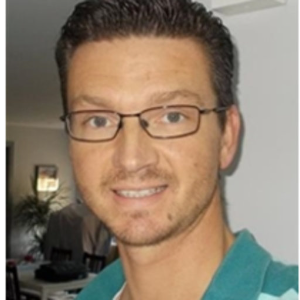Title : The organocatalysis: an efficient tool in ring-opening polymerization - valuable interests of DBU & TBD superbases
Abstract:
The term “organocatalysis” or organic catalysis describes the acceleration of chemical reactions through the addition of a substoichiometric quantity of an organic compound. The interest in this field has increased spectacularly in the last few years as result of both the novelty of the concept and, more importantly, the fact that the efficiency and selectivity of many organocatalytic reactions meet the standards of established organic reactions. Organocatalytic reactions are becoming powerful tools in the construction of complex molecular skeletons. The diverse state-of-the-art examples show that in recent years organocatalysis has developed within organic chemistry into its own subdiscipline, whose “Golden Age” has already dawned. Organic catalysis in ring-opening polymerization (ROP) has become a powerful alternative to more traditional metal-based catalysts. The field has developed to a point at which there are not only excellent low cost and easy to use organocatalysts for day-to-day polymerizations, but the ability to precisely control the synthesis of advanced polymer architectures and ROP monomers that are extremely challenging to polymerize with other catalysts now exists. Among the most successful and widely studied were the families of amidines and guanidines. Specifically, the commercially available base 1,8-diazabicyclo[5.4.0]undec-7-ene (DBU) has proven to be a valuable ROP catalyst and has been applied by a wide range of researchers. Extension of these studies to examine other organic bases revealed that the 1,5,7-triazabicyclo[4.4.0]dec-5-ene (TBD) is even more active for ROP that, in turn, present other interesting observations and opportunities in ROP. This presentation will highlight the key advances made in our laboratory by using both DBU and TBD superbases. To fit with the time allowed for the presentation, two examples will be illustrated, i.e. the use of DBU and TBD superbases to (i) switch on demand a controlled polymerization reaction reversibly “on” and “off” via the reversible fixation of gaseous CO2 and (ii) to promote the “one-pot, one-step” preparation of multi-block copolymers by simultaneous “O-alkyl” and “O-acyl” scissions of lactones.
Audience Take Away :
- Organocatalysis offers a number of opportunities in polymer synthesis
- Organocatalysis has become a powerful alternative to more traditional metal-based catalysts
- Multi-block copolymers, representing fascinating architectures, could now be prepared in a “one-pot, one-step” process involving simultaneous and independent “O-alkyl” and “O-acyl” cleavage scissions of 4- and 6-membered lactones
- The ability of superbases to interact with CO2, juxtaposed with their catalytic power in ROP, allows to switch on demand a controlled polymerization “on” and “off”, representing a useful tool in modern polymer chemistry



